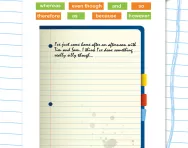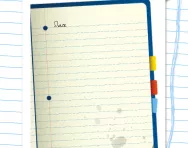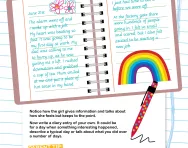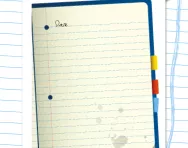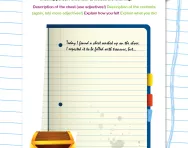Important update from TheSchoolRun
For the past 13 years, TheSchoolRun has been run by a small team of mums working from home, dedicated to providing quality educational resources to primary school parents. Unfortunately, rising supplier costs and falling revenue have made it impossible for us to continue operating, and we’ve had to make the difficult decision to close. The good news: We’ve arranged for another educational provider to take over many of our resources. These will be hosted on a new portal, where the content will be updated and expanded to support your child’s learning.
What this means for subscribers:
- Your subscription is still active, and for now, you can keep using the website as normal — just log in with your usual details to access all our articles and resources*.
- In a few months, all resources will move to the new portal. You’ll continue to have access there until your subscription ends. We’ll send you full details nearer the time.
- As a thank you for your support, we’ll also be sending you 16 primary school eBooks (worth £108.84) to download and keep.
A few changes to be aware of:
- The Learning Journey weekly email has ended, but your child’s plan will still be updated on your dashboard each Monday. Just log in to see the recommended worksheets.
- The 11+ weekly emails have now ended. We sent you all the remaining emails in the series at the end of March — please check your inbox (and spam folder) if you haven’t seen them. You can also follow the full programme here: 11+ Learning Journey.
If you have any questions, please contact us at [email protected]. Thank you for being part of our journey it’s been a privilege to support your family’s learning.
*If you need to reset your password, it will still work as usual. Please check your spam folder if the reset email doesn’t appear in your inbox.
8 great reasons for your child to keep a diary

In recent years, diary-style books such as the Wimpy Kid and Tom Gates series have repeatedly topped the children’s bestsellers lists. But while kids are lapping up their favourite characters’ journal entries, the number of children who keep a diary of their own has fallen over the past five years.
Now, though, a new report from the National Literacy Trust has highlighted the educational benefits of writing a diary, and the charity is urging parents to encourage their children to adopt the habit.
Here are eight reasons why keeping a diary could give your child’s attainment a boost.
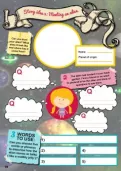
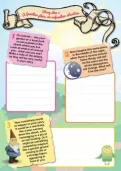
Download a FREE Creative Writing toolkit!
- KS1 & KS2 workbooks
- Bursting with fill-in prompt sheets and inspiring ideas
- Story structure tips, style guides and editing suggestions
1. Keeping a diary improves children’s writing
According to recent research, fewer children are writing for pleasure in their own time, to the detriment of their writing ability. Just five per cent of children who never write outside school are able to write at a higher level than is expected for their age, compared to over 30 per cent of those who do write in their own time.
Writing a diary is a great way to get children to write outside school, with a knock-on effect on their attainment: pupils who keep a diary are twice as likely to exceed age expectations in writing. ‘In terms of quality, the more children write, the better they are likely to become,’ says Clare Argar, Senior Programme Manager at the National Literacy Trust. ‘Anything children write outside school is good practice – you can be as creative as you like.’
2. Children can choose what to write
Within the classroom, children rarely have much choice in what to write about. The subject matter is almost always dictated by their teacher, whether they’re writing a poem about the seasons or a factual account of a school trip.
Diary writing, on the other hand, gives children complete freedom. ‘When you’re writing for yourself, rather than writing something that has to be handed in, anything goes,’ Clare says. And with the vast majority of children (82 per cent of girls, and 76 per cent of boys) saying that writing is more fun when they can choose what to write about, it’s a brilliant opportunity for them to discover the pleasure they can get from writing.
3. It improves handwriting
With children spending so much time using computers and other technology, in and out of school, handwriting is becoming a lost art. But although it’s been replaced by typing in many situations, it’s still an essential skill, and a percentage of marks in English SATs is allocated on the basis of handwriting.
‘Although there are lots of opportunities to keep a diary electronically, for example by writing a blog, most people who write a diary just for themselves do it by hand, so it’s good handwriting practice for your child,’ says Clare.
4. It makes writing routine
Writing a diary helps children get into a writing habit, so that it’s no longer something they dread, procrastinate about or feel afraid of.
‘They don’t have to do it every day; they could do it every other day, once or twice a week, or at the weekend,’ Clare explains. ‘But writing a diary can help build children’s confidence in their own writing ability, and as confidence grows, so does their motivation to want to do more.’
5. It ties in with the National Curriculum
Diary writing is a key skill covered in primary-school English, with children having to write both their own diary entries and imagined accounts from fictional or historical characters. Keeping a diary at home will help them get to know the conventions of diary writing, and develop their written English.
6. They can try out genres
Being able to write in different genres and styles is an important part of the National Curriculum. They’re expected to read stories, plays, poetry, non-fiction and textbooks, and apply the conventions they’ve learnt to their own writing.
‘Keeping a diary gives children the chance to try out different forms of writing,’ Clare says. ‘They have the freedom to experiment with different genres and to choose what they want to write about without worrying about it being marked.’ For example, your child might write a poem about the weather one day, and a report of a football match they went to the next.
7. It builds resilience
With mental health issues on the rise in children of primary school age, learning how to express emotions is a vital life skill, and one which keeping a diary can help them develop. ‘Writing a diary is a great way for children to process their thoughts and express their feelings,’ Clare explains. ‘It can help them build emotional maturity and resilience.’
8. It’s creative
As fans of Diary of a Wimpy Kid and the Tom Gates series will know, keeping a diary doesn’t just have to be about words. ‘Children can doodle and draw in their diaries, as well as writing, which is another good way for them to express themselves,’ Clare says. ‘Writing a diary isn’t just about putting facts down on paper: it can be very creative, too.’
Top tips for encouraging your child to keep a diary
- Give your child a diary. It may sound obvious, but having a special diary of their own can motivate children to write for pleasure. If your child is a reluctant writer, a lovely notebook may be a better option than a diary with dates that could put them under pressure to write daily.
- Use books as a model. Series such as Tom Gates, Wimpy Kid, Dork Diaries and Tracy Beaker can provide inspiration for children to start keeping a diary. For older children try historical, factual diaries like The Diary of Anne Frank.
- Let them experiment. Provide a selection of stationery such as coloured pens, stamps and stickers so they can be creative with their diary entries.
- Don’t put them under pressure. It doesn’t matter if they don’t write every day, or if they only manage a few sentences: any writing practice is good practice.
- Try out different formats. If your child struggles with handwriting, consider setting up a blog for them instead (but make sure you set the strictest privacy settings, and warn them about not revealing personal details).
- Let them keep it private. Unless you have specific concerns about your child’s wellbeing, don’t snoop in their diary: the whole point is for them to be able to write for themselves, not for an audience.
